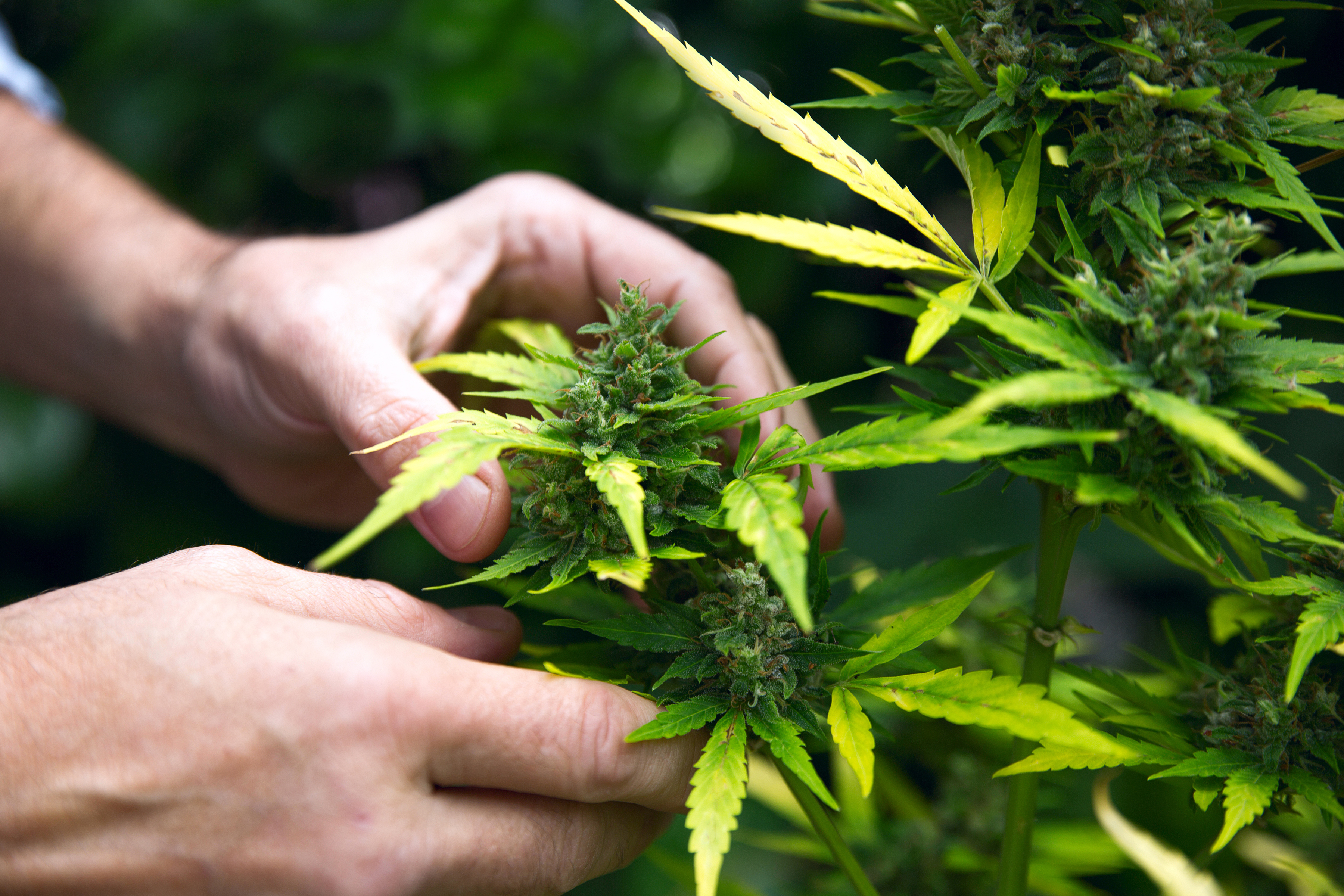By, Suzannah Weiss
The beginning of Cyo Nystrom’s sex life felt like a constant battle with her body. When she didn’t have a urinary tract infection, she had a yeast infection. The enjoyment she gained from her sexual relationships was undercut by the dread of knowing another infection could be on its way.
She did some research on women’s health products, but there weren’t any on the market that solved her problems. If anything, the products she had used, such as tampons and condoms, had the potential to make things worse, since the FDA didn’t regulate the chemicals used in them.
In 2015, Nystrom began her career in cannabis at Meadow, a software company serving California’s cannabis industry. She then became Director of Sales for Women Grow, an organization that supports women’s leadership in the cannabis industry. Because of her profession, someone gave her weed lube, and she was baffled by the spray bottle it came in.
“It was so clear to me that whoever used this product didn’t have a vagina,” Nystrom told Marijuana.com. “I just don’t understand — am I supposed to have my boyfriend go deep-sea diving and get it all the way up there? Fundamentally, a product that convinces people with vaginas not to touch their vaginas … it irks me.”
Once again disappointed by the sexual health products available to those with vaginas, she took matters into her own hands, so to speak.
In 2016, Nystrom and her co-founder Rachel Washtien started Quim Rock, described on its website as “a cannabis-infused self-care line for humans with vaginas and humans without vaginas who love vaginas.”
California dispensaries currently offer two Quim Rock lubes: Sensitive, which contains cannabis, medium-chain triglyceride (MCT) oil, and tea tree oil; and Curious, which has the same three base ingredients plus jasmine and clove. Rather than use a cannabis oil or tincture, Quim Rock infuses the cannabinoids directly into the MCT, a process that was detailed in an episode of “Slutever,” Viceland’s documentary series that explores sex and modern sexuality.
In November 2018, the company will update its offerings to replace these products with a lube called Night Moves that contains cannabis, MCT oil, tea tree oil, and the herb damiana, thought to be an aphrodisiac. Quim Rock will also release an aloe-based lube aimed at balancing vaginal pH called Oh YES! Latex-Safe Serum that will be compatible with latex condoms.

Quim Rock founders Cyo Nystrom (Left) and Rachel Washtien (Right). (Photo by Jennifer Skogg, MJ Lifestyle)
Nystrom’s goal was not only to help people enjoy sex more but also to help them stave off infections like hers, though she emphasizes that her lube is not an FDA-approved treatment for these conditions. Research is underway to determine whether tea tree oil has effective antifungal and antimicrobial properties.
“We’ve seen people talking about sex positivity, polyamory, different ways of exploring their pleasure,” she said. “And we felt vaginal health and wellness wasn’t getting the seat at the table it deserves.” Since she started using Quim Rock’s lube, she’s been UTI and yeast infection free.
The cannabis in the product also serves an important purpose. THC works as a vasodilator, increasing blood flow to the area to produce more natural lubrication and feel more arousal and pleasure, Nystrom explained.
Though some substances can be absorbed through the vaginal mucosa and skin, and smoking cannabis has been shown to produce a number of positive effects on women’s sex lives, there isn’t any research on the effects of cannabis-infused lube specifically, says Dr. Becky Kaufman Lynn, director of the Center for Sexual Health and assistant professor of obstetrics and gynecology at Saint Louis University. According to Jordan Tishler, president of InhaleMD and the Association of Cannabis Specialists, there are cannabis receptors in the skin, but these may not transmit the substance to the brain to produce the desired sexual effects.
Still, there’s some anecdotal evidence to support Nystrom’s claims.
Kelly, a musician from the San Francisco Bay Area, started using Quim Rock’s lube to improve her sex life — and she said it did. “Orgasms feel more evenly throughout my whole vagina,” and added that there was also an added bonus: Her vagina was more “relaxed, moist, and supple” even when she’s not having sex.
“Now, I put it on almost daily for healthy comfort all day long,” she said. “It’s a subtle soothe for daily ails of cyclical dryness, tight pants, and long days.”
Sex coach and CannaSexual creator Ashley Manta applies the Sensitive formula 25 minutes before sex.
“I am able to have penetrative sex without pain, something I struggled with for years due to my sexual trauma history,” she told Marijuana.com. “I find that orgasms flow more readily and that my clit, which usually gets hyper-sensitive after the first or second orgasm, has a lot more stamina for stimulation.” She also puts the lube on after sex marathons to soothe soreness.
“My clients have reported longer, stronger, more attainable orgasms after using this oil,” Manta added. “I also work with a lot of folks who are survivors of various kinds of trauma and have experienced pain with penetration. They find it quite useful as well. Finally, you can take this oil and add a few pumps to an empty ice cube tray, then fill the tray up the rest of the way with coconut oil, freeze it, and you have a DIY suppository that can be used vaginally for pain.”
As cannabis becomes legalized and destigmatized, more are turning to it for health purposes. But Nystrom too often sees cannabis products sold by male-run companies to male audiences and is hoping she can help bring its benefits to women. “When I was going out on fundraising, I was talking to investors, and they’d say ‘you’re trying to solve such a niche problem,’” she remembers. “And what I’m trying to remind them is, half the world has a vagina — it’s not a niche.”
Beyond just providing a product, Nystrom hopes Quim Rock starts a dialogue around sexual health. “It’s so deeply coded in shame throughout our society that a lot of healing can come through a lot of dialogue,” she said. “The more we humanize women’s health issues, it will foster more of a culture of empathy.”















